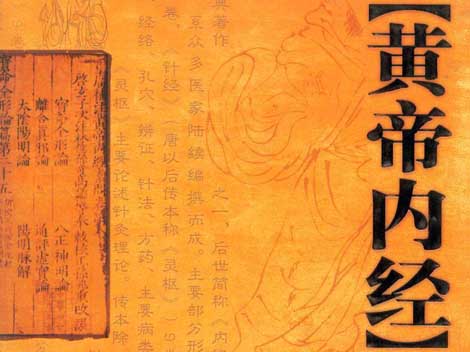
The Huangdi Neijing (given the title The Yellow Emperor’s Classic of Medicine in one of the latest translations) is an ancient treatise on health and disease said to have been written by the famous Chinese emperor Huangdi around 2600 BC. However, Huangdi is a semi-mythical figure, and the book probably dates from later, around 300 BC and may be a compilation of the writings of several authors. Whatever its origin, the book has proved influential as a reference work for practitioners of traditional Chinese medicine well into the modern era. The book takes the form of a discussion between Huangdi and his physician in which Huangdi inquires about the nature of health, disease, and treatment.
The ideas in the book have a basis in Taoist philosophy. The key to a long healthy life is to follow the Tao, the natural way of the universe. Health and illness are caused by an imbalance of the two basic forces, yin and yang, and by the influence of the five elements (water, fire, metal, wood, and earth) on the organs of the body. The organs themselves were thought to interact in ways that seem physiologically strange nowadays: the spleen “ruled” over the lungs, for example, and the lungs were connected with the skin. There was an understanding of the connection between the heart and the pulse but not in terms of circulation of the blood as understood today.
Diagnosis was mainly carried out by pulse taking, a complex process involving taking into account the time of day, season, and sex of the patient. Treatments included drugs, diet, acupuncture, and guiding the patient towards Tao.
Many of the book’s ideas, particularly those relating to anatomy and physiology, would obviously seem primitive and outdated to modern readers but no more so than ideas from a similar time in Western medicine. The strength of the work, and possibly the reason for its widespread influence and its place even today not just as a reference source for those interested in traditional Chinese medicine, is that its basic ideas are still valid and of appeal to anyone interested in understanding more about the custom and practice of medicine. The Huangdi Neijing recognises that, for everyone, the processes of the body follow certain natural rules and that health and disease are influenced by natural ageing processes, as well as the environment. All this needs to be understood to ensure accurate diagnosis and specific treatment for a condition.
We Recommend:
